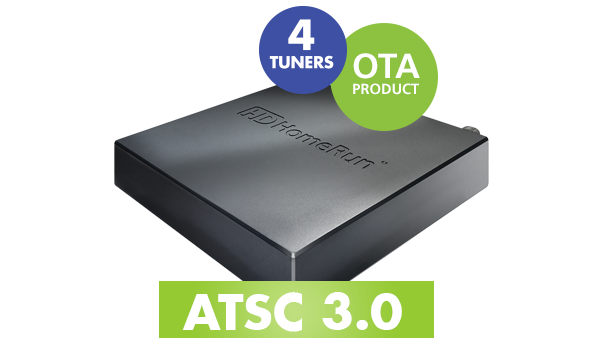
The professional video industry's #1 source for news, trends and product and tech information. Sign up below.
You are now subscribed
Your newsletter sign-up was successful
WASHINGTON—The law firm representing Pearl TV today in a letter to the FCC identified a chipset from a Huawei subsidiary as the reason SiliconDust’s HDHomeRun Flex is incapable of accessing ATSC 3.0 programming encrypted using A3SA content protection technology.
“The root cause why the HDHomeRun device has encountered issues is that it depends on a chipset manufactured by HiSilicon, a wholly-owned subsidiary of Huawei Technologies Co., Ltd., which the Commission has found to be ‘a national security threat to the integrity of our communications networks’ given that the company has been deemed to be ‘highly susceptible to influence and coercion by the Chinese government,’ ” Pearl TV legal consul Covington & Burling said in the letter to the FCC commissioners.
The letter, signed by attorneys Gerard Waldron and Max Larson, was sent to the FCC in response to a question from the agency’s Media Bureau about comments from a “relatively small number of consumers” who have purchased the device and encountered the problem.
“Given SiliconDust’s business decision to include a chip from HiSilicon, it should be no surprise” to the agency that the device is “unable to obtain a security verification to display all ATSC 3.0 content,” the letter said.
The FCC should “be troubled” by the fact that SiliconDust “has chosen not to remove components deemed to be a national security threat,” it said.
In June of 2020, the FCC designated Huawei and ZTE, another Chinese-owned company, as national security threats.
“The most troubling aspects of SiliconDust’s behavior is that it actively markets a device to consumers that it knows will not work with the A3SA content protection technology being used by ATSC 3.0 broadcasters,” the letter said.
The professional video industry's #1 source for news, trends and product and tech information. Sign up below.
The letter also included several pictures of a breakdown of an HDHomeRun Flex purchased from a U.S. retailer this month. The device was disassembled so the photographs taken and submitted could show the HiSilicon chipset.
SiliconDust rejected the letter’s argument, saying its device is certified by the Consumer Technology Association as fully compliant with all required ATSC 3.0 standards.
“The specifications and rules that relate to DRM are not part of the ATSC 3.0 standard but a private set of specifications and rules put together by the five voting members of A3SA: ABC Inc., CBS Broadcasting Inc., Fox Television, NBC Universal Media and Univision,” Nick Kelsey, president and chief technology officer of SiliconDust USA, said.
The company also objected to being deemed affiliated with the Chinese government. “The HDHomeRun is not a Chinese developed or made product and does not fall under this categorization,” he said. “We have zero association with the Chinese government… [and are] (p)roudly designed and developed in the United States of America.”
In Kelsey’s view, the premise of the Pearl TV letter is wrong. “A video gateway product, such as the HDHomeRun, does not decrypt the DRM content. The job of the gateway product is to receive content from the antenna and deliver it to player devices within the home network.
“If the content received from the antenna is DRM-encrypted, the gateway delivers … [that] encrypted content to the player device. This is a requirement because A3SA requires the protected video to remain protected across the home network,” he said.
SiliconDust plans to file a response to Pearl TV’s letter with the FCC, he added.
Phil Kurz is a contributing editor to TV Tech. He has written about TV and video technology for more than 30 years and served as editor of three leading industry magazines. He earned a Bachelor of Journalism and a Master’s Degree in Journalism from the University of Missouri-Columbia School of Journalism.

